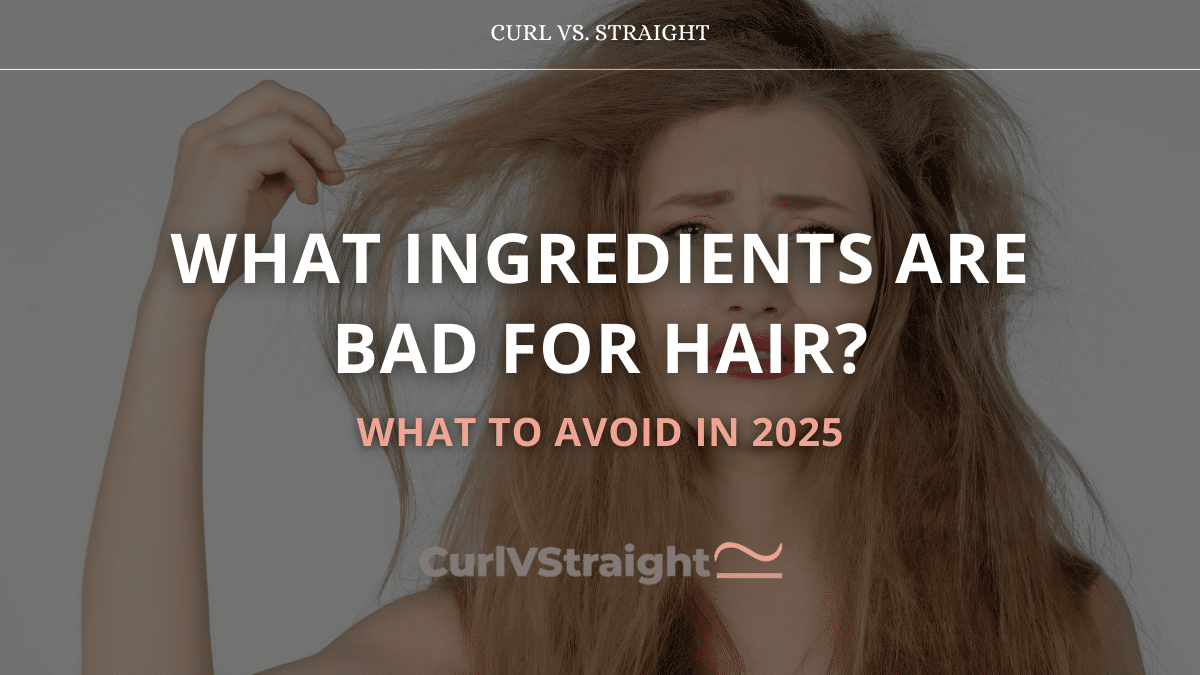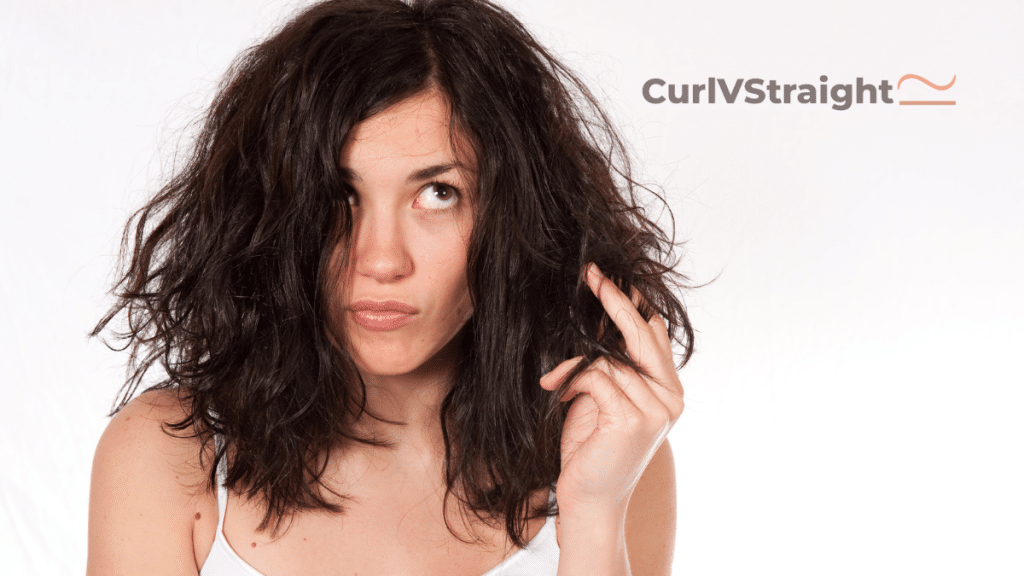
Not all hair products are created equal—and some are actually working against your hair goals. In 2025, with cleaner beauty standards rising, more people are checking labels and ditching ingredients that can cause dryness, frizz, breakage, or even scalp irritation.
Whether you have sleek straight strands, bouncy curls, or coily coils, this simple guide breaks down the top ingredients to avoid for healthier hair—and what to use instead.
🧪 Ingredients You Should Avoid in Hair Products (2025 Edition)

1. Sulfates (Sodium Lauryl Sulfate, Sodium Laureth Sulfate)
- Harsh cleansers that strip natural oils
- Cause dryness, frizz, and scalp irritation
- Look for “sulfate-free” formulas
2. Silicones (Dimethicone, Cyclopentasiloxane)
- Coat hair and create fake shine
- Can cause buildup that blocks moisture
- Water-soluble silicones are safer; avoid heavy, non-soluble types
3. Parabens (Methylparaben, Propylparaben)
- Preservatives linked to scalp irritation
- Many brands now offer paraben-free options
4. Alcohols (Drying Types like Isopropyl Alcohol)
- Quickly evaporates moisture from hair
- Some alcohols (like fatty alcohols) are fine; avoid drying alcohols
5. Artificial Fragrances and Dyes
- Can cause allergic reactions and scalp sensitivity
- Natural or fragrance-free products are safer choices
6. Formaldehyde-Releasing Preservatives (DMDM Hydantoin, Quaternium-15)
- Linked to scalp irritation and potential long-term health risks
- Increasingly banned or phased out in clean hair care
7. Heavy Mineral Oils and Petroleum
- Create buildup and block moisture absorption
- Choose plant-based oils (argan, jojoba, coconut) instead
✅ What to Look for Instead
- Sulfate-free, silicone-free, paraben-free labels
- Natural ingredients: aloe vera, coconut oil, shea butter, glycerin
- Lightweight, water-soluble stylers for better hydration
Your hair deserves ingredients that nourish, not just coat it.
🧠 FAQs: Bad Hair Ingredients Explained
Q1: Are all silicones bad for hair?
Not all! Water-soluble silicones (like PEG-modified ones) can be curl- and straight-hair friendly if you clarify occasionally.
Q2: Can alcohols be good for hair?
Fatty alcohols (like cetyl or stearyl alcohol) are moisturizing. It’s the drying alcohols (like isopropyl) you want to avoid.
Q3: How do I know if my products are clean?
Look for clear labels (sulfate-free, paraben-free) and check ingredient lists—shorter, simpler lists are usually better.
✨ Final Thoughts
In 2025, smarter hair care starts with smarter shopping. By ditching the damaging ingredients and choosing cleaner, nourishing products, your curls, waves, and sleek strands will thank you.
💬 Have you made the switch to cleaner hair care yet? Share your favorites in the comments!
For more hair care tips, product breakdowns, and curl + straight hair hacks, follow us on social media and check out our website. Healthier hair starts with smarter choices.


Leave a Reply